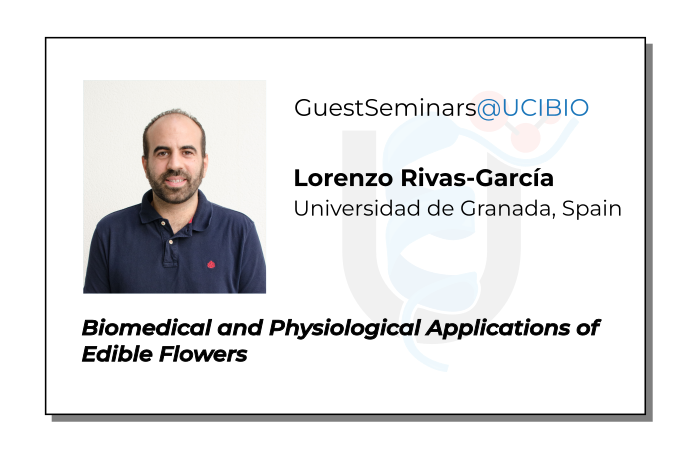
Biomedical and Physiological Applications of Edible Flowers
Lorenzo Rivas Garcia, Universidad de Granada, Spain
Hosts: Pedro Viana Baptista and Alexandra Fernandes, UCIBIO NOVA
Zoom Link: https://ucibio.pt/l/GuestSeminars
Abstract:
In recent years, the consumption of edible flowers has grown exponentially, gaining special relevance in several emerging European markets. Despite this increasing popularity, key aspects related to their chemical composition, toxicity, and biomedical potential remain underexplored, limiting their broader industrial application. Preliminary studies have shown that many edible flowers are rich in polyphenols—secondary plant metabolites with strong antioxidant properties. This seminar will explore the latest research on the therapeutic potential of edible flowers in the prevention and management of prevalent non-communicable chronic diseases. It will also highlight the promising role of this emerging food industry as a niche for economic development.
Short Bio:
Dr. Lorenzo Rivas-García is a Substitute Professor in the Department of Physiology at the University of Granada. His research focuses on exploring new therapeutic strategies based on nanomaterials and natural compounds, with applications in cancer and other chronic diseases. He holds a BSc in Pharmacy (2011), a BSc in Food Science and Technology (2013), a MSc in Human Nutrition (2014), and a Ph.D. in Nutrition and Food Technology (2018), all from the University of Granada. He has carried out postdoctoral research at institutions in Spain and Portugal, including the University of Castilla-La Mancha, the Maimónides Institute for Biomedical Research of Córdoba (IMIBIC), and the Universidade Nova de Lisboa. Dr. Rivas-García has authored over 40 scientific publications, with much of his recent work appearing in high-impact journals. He has participated in several national and international research projects, one of which he led as principal investigator. His current work combines biomedical research, nutrition, and nanotechnology to contribute to more effective and safer health interventions.
